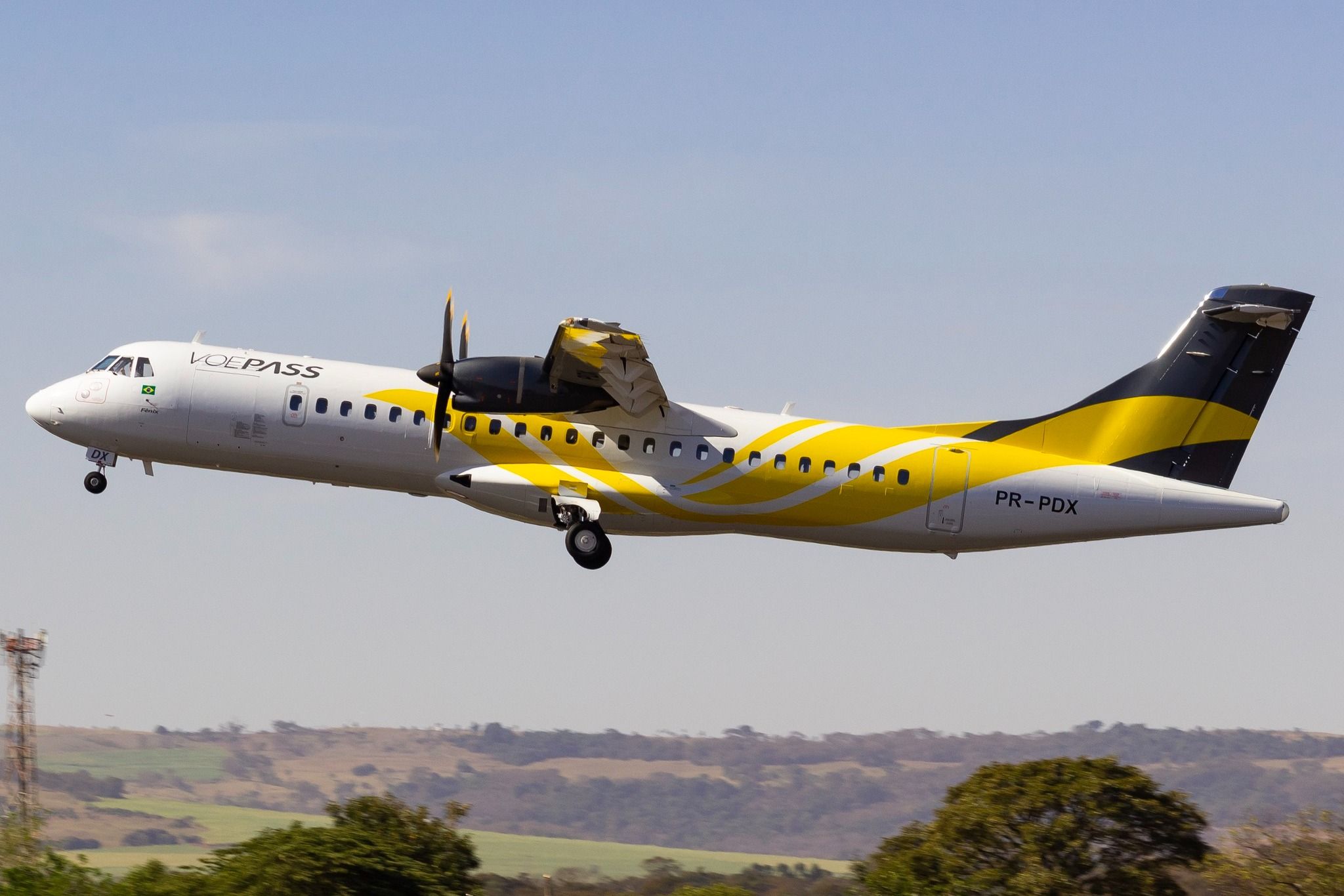Summary Passenger saved by coffee distraction misses tragic flight. Victims of the Voepass ATR-72-500 crash include fitness enthusiasts, a family from Venezuela, and a group of doctors. Initial reports uncovered a warning for severe icing just before the crash; others have compared the tragedy to a past ATR-72 disaster.
A passenger intended to be onboard Friday’s tragic Voepass Linhas Aéreas flight likely had no idea that his distractions over a cup of coffee ended up saving his life. The last-minute decision happened as the traveler waited to check into the flight. 61 passengers onboard the ATR-72-500 died after it is believed that the aircraft suffered from a flat spin, causing it to rapidly plunge from several thousand feet from the air.

An investigation into the tragedy has been launched to determine the cause of the crash. An angry encounter According to The Sunday Times , Adriano Assis is a hospital worker from Rio de Janeiro. As he waited for the check-in counter to open for flight 2283 (PTB2283), he decided to purchase a cup of coffee.
Assis subsequently missed the flight after reportedly being distracted. He pleaded with the gate agent to allow him to board the aircraft, which ultimately led up to what The Sunday Times described as an angry exchange. When Assis was interviewed on TV, he was moved to tears as he relived the encounter and realized just how crucial the gate agent’s refusal to let him board was.
“He ended up saving my life,” he said, according to The Sunday Times. The victims onboard Liana Vasatta, who was a lawyer, originally planned to travel with her husband on an earlier flight, but was delayed. As a result, she reportedly bought one of the last seats available on PTB2283.
Other victims included Daniela Schulz, who was also traveling with her husband, Hiales Fodra. The couple, who were fitness enthusiasts, were headed to America to celebrate Schulz's birthday. According to Voepass, passengers onboard had Brazilian travel documents.
Three victims – a four-year-old boy, his mother, and his grandmother – were from Venezuela. Additionally, one Portuguese citizen was onboard. Several doctors, believed to be oncologists, were also on the flight to attend a seminar in São Paulo.
Video of the ATR-72-500 spiraling out of control as it fell ground has been shared all over social media. Upon impact, the turboprop broke up and burst into flames in the garden of a small apartment complex. Remarkably, no one on the ground was injured, but all passengers onboard were severely burnt.
The cause of the airplane crash is still under investigation. One of the firefighters who responded to the scene described a grim discovery to local media, according to The Sunday Times. “We can identify them by the rows where they were sitting, from the cockpit to the tail,” the first responder explained.
“All the bodies are as if they were sitting in the seats.” An investigation is underway The aircraft’s black box was discovered by investigators on Saturday. The Brazilian Air Force released video showing investigators opening the cockpit voice recorder.
The data will be a major element of the investigation into the cause of the crash, which was launched by the Aeronautical Accidents Investigation and Prevention Center (CENIPA) on Friday. Eduardo Busch, Voepass’ Chief Executive, spoke about the ongoing investigation. “We are waiting for access to all communications between the pilot and the control tower to have a broader understanding of what happened.
” Initial reports from Flightradar24 indicated an active warning for severe icing between 12,000 and 21,000 feet just before the aircraft crashed. It has been proven that ice is a significant danger to aircraft as it increases drag, leading to an accelerated stall. Data showed that the turboprop plunged from 17,000 feet in 60 seconds.
Described as a flat spin situation, Brazilian aviation expert Lito Sousa reportedly told the Associated Press that it is impossible “to reclaim control of the plane.” Others have said the catastrophe is reminiscent of American Eagle flight 4184, which was also operated by an ATR-72. The plane flew into severe icing conditions, causing it to lose control and crash into a field, killing all 68 onboard.
While some military and aerobatics pilots are properly trained to recover aircraft from flat spins, commercial pilots, who often fly larger aircraft, do not receive such training, according to The Sunday Times. Officials released the identities of the pilots of flight 2283 on Saturday. 35-year-old Danilo Santos Romano was the Captain with at least 10 years of experience.
Romano had reportedly been a Captain at Voepass for only one year and was previously a first officer for eight months. His co-pilot was 61-year-old Humberto de Campos Alencar e Silva. Afflicting T-tail aircraft, in particular, deep stalls, are virtually unrecoverable and have led to numerous high-profile disasters.
.



















